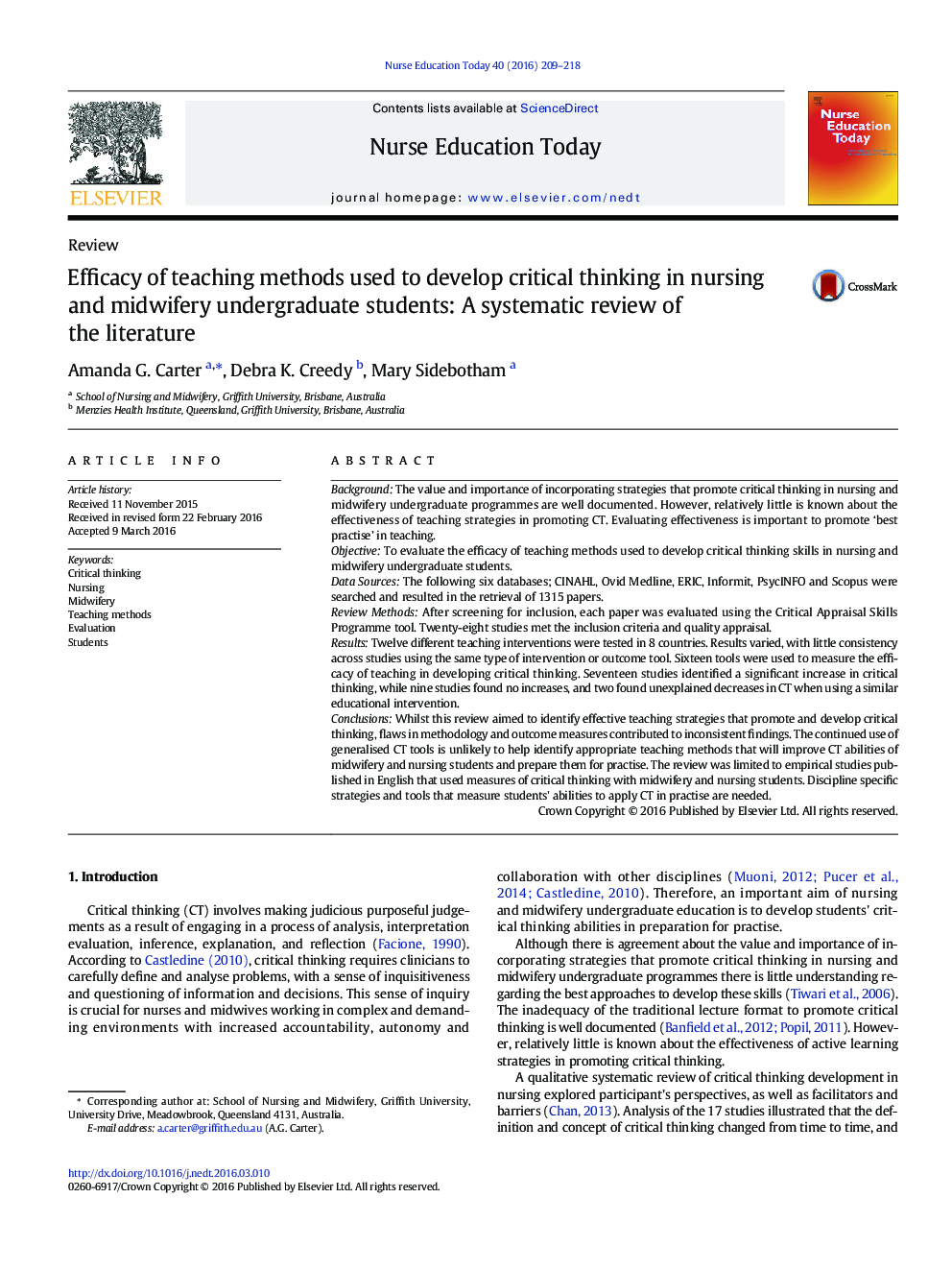| Article ID | Journal | Published Year | Pages | File Type |
|---|---|---|---|---|
| 367875 | Nurse Education Today | 2016 | 10 Pages |
•Evidence-based teaching methods are needed to develop critical thinking skills.•Evaluation of teaching methods and effect on critical thinking is inconsistent.•Problem-based learning methods are commonly used to develop critical thinking.•Standardised, discipline specific tools are required to measure critical thinking in practise.•Active constructivist-based learning strategies are vital in educating nurses.
BackgroundThe value and importance of incorporating strategies that promote critical thinking in nursing and midwifery undergraduate programmes are well documented. However, relatively little is known about the effectiveness of teaching strategies in promoting CT. Evaluating effectiveness is important to promote ‘best practise’ in teaching.ObjectiveTo evaluate the efficacy of teaching methods used to develop critical thinking skills in nursing and midwifery undergraduate students.Data SourcesThe following six databases; CINAHL, Ovid Medline, ERIC, Informit, PsycINFO and Scopus were searched and resulted in the retrieval of 1315 papers.Review MethodsAfter screening for inclusion, each paper was evaluated using the Critical Appraisal Skills Programme tool. Twenty-eight studies met the inclusion criteria and quality appraisal.ResultsTwelve different teaching interventions were tested in 8 countries. Results varied, with little consistency across studies using the same type of intervention or outcome tool. Sixteen tools were used to measure the efficacy of teaching in developing critical thinking. Seventeen studies identified a significant increase in critical thinking, while nine studies found no increases, and two found unexplained decreases in CT when using a similar educational intervention.ConclusionsWhilst this review aimed to identify effective teaching strategies that promote and develop critical thinking, flaws in methodology and outcome measures contributed to inconsistent findings. The continued use of generalised CT tools is unlikely to help identify appropriate teaching methods that will improve CT abilities of midwifery and nursing students and prepare them for practise. The review was limited to empirical studies published in English that used measures of critical thinking with midwifery and nursing students. Discipline specific strategies and tools that measure students' abilities to apply CT in practise are needed.
